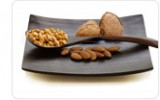
Yes, women have testosterone, too! Although we only produce a fraction of the amount that men produce, this hormone plays a vital role in our bodily functions. Testosterone in women is responsible for maintaining sexual development, libido, and energy levels, for example. During menopause, a hormonal imbalance can suppress your testosterone levels, so read on to learn about several methods of getting your hormones back on track.
Nourish Your Adrenal Glands
Your adrenal glands are part of your endocrine system, and are responsible for the production of testosterone. Eating foods that nourish these glands, as well as getting enough sleep, can make them more productive. Among the foods that help to nourish your adrenal glands are:
- Colored berries
- Salad greens
- Whole grains
- Apples
- Plums
- Carrots
- Celery
Incorporating more of these foods into your diet will help to keep your adrenal glands healthy, and will boost testosterone production.
Change Your Diet
You've heard it a thousand times before — eat more fruits and vegetables. It's advice worth repeating. Filling up on these healthy foods will allow you to limit your fat and sugar intake — two opponents of your body's testosterone levels. In addition, there are certain foods that naturally increase your body's testosterone production, such as oysters, asparagus, and almonds.
Lift Weights
Your body thrusts testosterone production into full gear during and immediately after a workout, especially if the exercise involves resistance or endurance training. Join a gym, sign up for an exercise class, or invest in some free weights to use at home. For optimum benefits and to decrease the risk of injury, learn proper form and increase the weight you're lifting gradually.
Try Alternative Treatments

Though these types of treatments are not the right solution for every woman, they are certainly worth considering. Two primary types of alternative medicines exist: phytoestrogenic and hormone-regulating herbal supplements. The last one is usually preferred because it supports women's production of hormones by nourishing the endocrine glands.
Talk to Your Doctor
For some women, these natural methods may not be effective enough. If you are among them, you can ask your doctor about hormone replacement therapy (HRT). This type of treatment is the most invasive and is associated with increased risks of certain cancers, heart disease, and stroke. Be cautious of altering your testosterone levels, even if you choose to do it naturally. You should consult your doctor before beginning any regimen, for a proper diagnosis, and to review what treatment methods might be best for your body. Too much of the hormone can cause unwanted side effects, such as a deepened voice and excess hair growth.
Recommendation
Symptoms of low testosterone levels include: low sex drive, fatigue, depression, and increase in body fat. Click on the following link to learn more about diagnosing and treating low testosterone during menopause.
